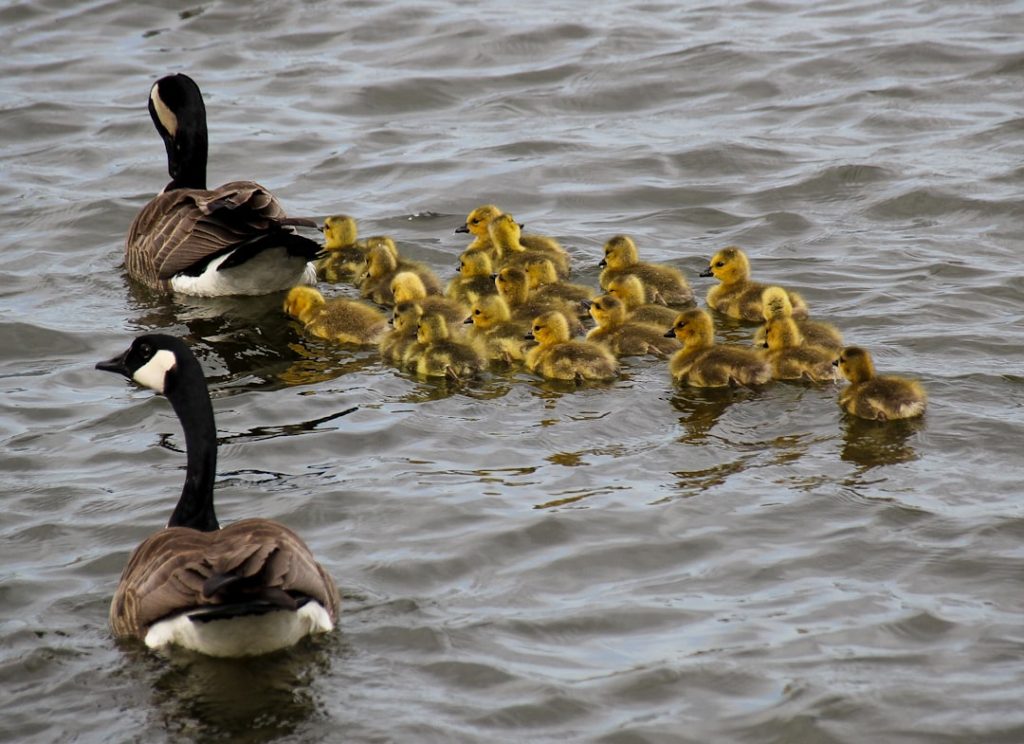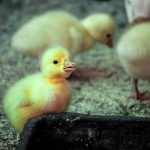Ducks are a popular choice for many farmers and homesteaders due to their versatility and usefulness. There are numerous duck breeds available, each with its own unique characteristics and traits. From egg production to meat quality, different duck breeds offer various benefits for those looking to raise ducklings. Understanding the different breeds and their specific qualities is essential for anyone considering adding ducks to their farm or homestead.
Duck breeds can be categorized into different groups based on their primary purpose, such as egg production, meat production, or ornamental purposes. Some popular duck breeds include the Pekin, Khaki Campbell, Indian Runner, and Muscovy. Each breed has its own distinct features, such as size, color, and temperament. Additionally, some breeds are better suited for certain climates or environments, so it’s important to consider these factors when choosing the right breed for your needs. Whether you’re looking for a breed that excels in egg production, meat quality, or simply as a charming addition to your farm, there’s a duck breed out there for you.
Table of Contents
- 1 Popular Duck Breeds for Raising Ducklings
- 2 Caring for Ducklings: Tips and Guidelines
- 3 Differences in Raising Ducklings from Different Breeds
- 4 Health and Nutrition for Ducklings
- 5 Training and Socialization for Ducklings
- 6 Choosing the Right Duck Breed for Your Needs
- 7 FAQs
- 7.1 What are the different breeds of ducks?
- 7.2 How can you identify different duck breeds?
- 7.3 What are the most common duck breeds for raising ducklings?
- 7.4 How long does it take for ducklings to hatch?
- 7.5 What should you feed ducklings?
- 7.6 At what age do ducklings start to feather out?
- 7.7 How do you care for ducklings?
Key Takeaways
- There are many different duck breeds, each with their own unique characteristics and traits.
- Popular duck breeds for raising ducklings include Pekin, Khaki Campbell, and Indian Runner ducks.
- When caring for ducklings, it’s important to provide them with a warm and safe environment, proper nutrition, and access to water for swimming.
- Different duck breeds may require different care and handling, so it’s important to research and understand the specific needs of the breed you choose to raise.
- Health and nutrition for ducklings should include a balanced diet, access to clean water, and regular veterinary check-ups to ensure their well-being.
Popular Duck Breeds for Raising Ducklings
When it comes to raising ducklings, there are several popular duck breeds that are commonly chosen for their various qualities and characteristics. The Pekin duck is one of the most popular choices for those looking to raise ducklings for meat production. Known for their fast growth rate and excellent meat quality, Pekin ducks are a favorite among farmers and homesteaders. Another popular breed is the Khaki Campbell, which is prized for its exceptional egg-laying abilities. Khaki Campbells are known to lay a large number of eggs throughout the year, making them an ideal choice for those interested in egg production.
For those looking for a more ornamental breed, the Indian Runner duck is a popular choice. With their distinctive upright stance and comical waddling gait, Indian Runners are often kept for their entertaining and charming presence on the farm. Lastly, the Muscovy duck is another popular breed known for its unique appearance and excellent meat quality. Muscovy ducks are larger than other breeds and are valued for their lean and flavorful meat. Whether you’re interested in meat production, egg-laying capabilities, or simply want a visually striking addition to your farm, there’s a duck breed that’s perfect for your needs.
Caring for Ducklings: Tips and Guidelines
Caring for ducklings requires attention to detail and a good understanding of their specific needs. When raising ducklings, it’s important to provide them with a warm and safe environment, as well as access to clean water and nutritious feed. Ducklings should be kept in a brooder with a heat lamp to maintain the appropriate temperature, as they are sensitive to cold temperatures. Additionally, providing them with a non-slip surface and access to water for swimming is essential for their physical development.
Feeding ducklings a balanced diet is crucial for their growth and development. A high-quality starter feed specifically formulated for ducklings should be provided to ensure they receive the necessary nutrients for healthy growth. It’s also important to monitor their water intake and ensure they have access to clean water at all times. Proper hygiene and cleanliness are essential when caring for ducklings to prevent the spread of diseases and infections. Regular cleaning of their living space and providing fresh bedding is necessary to maintain a healthy environment for the ducklings.
Differences in Raising Ducklings from Different Breeds
Raising ducklings from different breeds can present unique challenges and considerations based on their specific traits and characteristics. For example, Pekin ducklings are known for their rapid growth rate, which means they require ample space to move around and exercise. Providing them with a spacious living area and access to outdoor space is essential for their physical development. On the other hand, Khaki Campbell ducklings are prized for their exceptional egg-laying abilities, so ensuring they have a well-balanced diet and proper nutrition is crucial to support their reproductive health.
When raising Indian Runner ducklings, it’s important to consider their unique upright stance and preference for walking rather than waddling. Providing them with ample space to move around freely and engage in natural behaviors is essential for their well-being. Additionally, Muscovy ducklings are larger than other breeds, so they require a diet that supports their growth without promoting excessive weight gain. Understanding the specific needs of each breed is essential for successfully raising healthy and thriving ducklings.
Health and Nutrition for Ducklings
Maintaining the health and nutrition of ducklings is essential for their overall well-being and development. Providing them with a balanced diet that meets their specific nutritional requirements is crucial for healthy growth. A high-quality starter feed formulated for ducklings should be provided to ensure they receive the necessary vitamins, minerals, and protein for optimal development. Additionally, offering access to clean water at all times is essential for hydration and proper digestion.
Regular health checks and monitoring of ducklings are important to identify any potential issues early on. Keeping an eye out for signs of illness or distress, such as lethargy or changes in appetite, can help prevent the spread of diseases and ensure prompt treatment if needed. Maintaining a clean living environment and practicing good hygiene measures can also help prevent common health issues in ducklings. Providing them with ample space to move around and engage in natural behaviors can contribute to their overall health and well-being.

Training and socialization play an important role in raising well-adjusted and sociable ducklings. Introducing them to human interaction from a young age can help them become more comfortable around people and less skittish. Spending time with ducklings regularly and gently handling them can help build trust and familiarity with humans. Additionally, providing them with opportunities for outdoor exploration and exposure to different environments can help them develop confidence and adaptability.
Socializing ducklings with other ducks is also important for their social development. Allowing them to interact with other ducklings or adult ducks can help them learn important social behaviors and communication skills. Providing them with ample space to move around freely and engage in natural behaviors can also contribute to their overall well-being and social development. By incorporating training and socialization into their daily routine, ducklings can grow up to be confident, well-adjusted ducks that are comfortable in various environments.
Choosing the Right Duck Breed for Your Needs
In conclusion, choosing the right duck breed for your needs requires careful consideration of their specific traits, characteristics, and intended purpose. Whether you’re interested in egg production, meat quality, or simply want an ornamental addition to your farm, there’s a duck breed that’s perfect for you. Understanding the unique qualities of each breed and their specific requirements is essential for successfully raising healthy and thriving ducklings.
From the rapid growth rate of Pekin ducklings to the exceptional egg-laying abilities of Khaki Campbell ducklings, each breed offers its own set of advantages and considerations. Providing proper care, nutrition, and socialization is crucial for raising well-adjusted and healthy ducklings regardless of their breed. By taking into account the specific needs of different duck breeds, you can make an informed decision when choosing the right breed for your farm or homestead. Ultimately, the right duck breed will not only meet your specific needs but also bring joy and fulfillment to your farming experience.
If you’re considering raising ducklings, it’s important to understand the different breeds and their specific needs. Whether you’re interested in Pekin ducks, Khaki Campbells, or Indian Runners, each breed has its own characteristics and requirements. To learn more about the various duck breeds and how to care for them, check out this informative article on PoultryWizard. This resource provides valuable insights into raising ducklings and creating a suitable environment for them to thrive.
FAQs
What are the different breeds of ducks?
There are many different breeds of ducks, including the Pekin, Mallard, Rouen, Khaki Campbell, and Muscovy, among others. Each breed has its own unique characteristics and traits.
How can you identify different duck breeds?
Duck breeds can be identified by their physical characteristics, such as size, color, and markings. Some breeds also have distinct features, such as the crest on a Crested duck or the upright posture of a Runner duck.
What are the most common duck breeds for raising ducklings?
The Pekin and Khaki Campbell are two of the most common duck breeds for raising ducklings. They are known for their good egg production and calm temperament, making them popular choices for backyard duck farming.
How long does it take for ducklings to hatch?
Duck eggs typically take about 28 days to hatch. The exact time can vary depending on the breed and the specific conditions in which the eggs are being incubated.
What should you feed ducklings?
Ducklings should be fed a diet that is high in protein, such as a commercial duck starter feed or a homemade mix of grains and protein sources. It’s important to provide them with access to clean water at all times.
At what age do ducklings start to feather out?
Ducklings start to feather out at around 2-3 weeks of age. They will gradually develop their adult feathers over the course of several weeks.
How do you care for ducklings?
Ducklings require a warm, draft-free environment, access to clean water for drinking and bathing, and a balanced diet. They also need plenty of space to move around and exercise. Regular health checks and proper hygiene are also important for their care.
Meet Walter, the feathered-friend fanatic of Florida! Nestled in the sunshine state, Walter struts through life with his feathered companions, clucking his way to happiness. With a coop that’s fancier than a five-star hotel, he’s the Don Juan of the chicken world. When he’s not teaching his hens to do the cha-cha, you’ll find him in a heated debate with his prized rooster, Sir Clucks-a-Lot. Walter’s poultry passion is no yolk; he’s the sunny-side-up guy you never knew you needed in your flock of friends!







